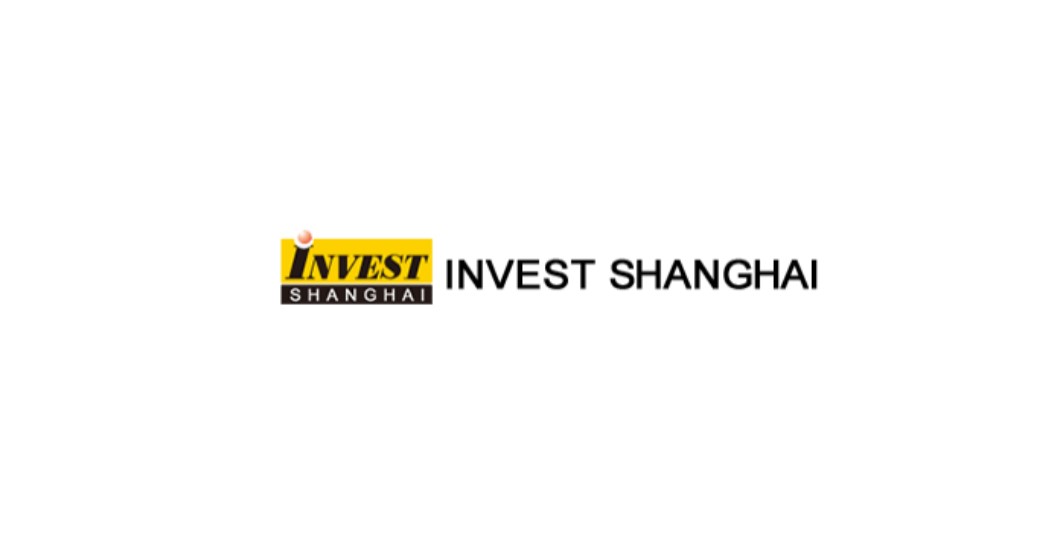Leveraging Hong Kong's Advantages to Expand into the Greater Bay Area Market
With its excellent connectivity to mainland China and the rest of the world, its world‑class universities and research and development prowess, Hong Kong is fast developing into an innovation and technology (I&T) hub. According to the Global Innovation Index 2022 published by the World Intellectual Property Organisation, the Shenzhen‑Hong Kong‑Guangzhou cluster ranks second as a leading global science and technology innovation hub. Closer integration between Hong Kong and the mainland is thus central to the city’s success. To help guide start‑ups intent on strengthening cross‑border co‑operation, HKTDC Research recently interviewed Professor Chen Guanhua, Co‑founder of the Hong Kong X Technology Fund, and Ji Peiran, the Fund’s Investment Director, on the outlook for I&T development in Hong Kong and the mainland.
Challenges Posed by the Changing External Environment
Since the announcement of the Outline Development Plan for the Guangdong‑Hong Kong‑Macao Greater Bay Area in February 2019, the GBA has developed into one of the regions in China most open to the outside world. Hong Kong, as an important business and trade hub for Asia, serves as the bridgehead for the mainland to “go out” and connect with the world. Under the Outline Development Plan Hong Kong also links up with Macao and Guangdong province to facilitate the mainland to deepen reform and build a modern economic system which will better integrate with the global market.
Since early 2022, the fluctuating Covid‑19 situation in mainland China and Hong Kong has disrupted the transportation logistics of the mainland supply chains and obstructed cross‑border customs clearance of goods. This has inevitably impacted enterprises large, medium and small to varying degrees. Pandemic control measures have also impeded the movement of people between Hong Kong and the mainland and increased the operating costs for Hong Kong companies engaged in cross‑border business. Thanks to the government’s effective anti‑Covid measures, the epidemic situation is gradually stabilising. Relief measures have been introduced by the central, Guangdong provincial and other local authorities, and the negative impact of Covid‑19 on the economy of the mainland and Hong Kong is reducing. Meanwhile, the flow of goods and people across the border is becoming easier.
On the international front, geopolitical tensions around the world have been growing in recent years. There have been US‑China trade frictions as well as the tariff and non‑tariff trade barriers erected by certain foreign governments on China‑origin products. The outbreak of the Russia‑Ukraine war in February 2022 has restricted the supply of energy and foodstuffs. Global inflation has prompted many central banks to raise interest rates, weakening demand in overseas markets and dealing a direct blow to Hong Kong companies’ exports. Amid these challenges, Hong Kong manufacturers and traders are reviewing their operational strategies and adjusting their market positioning and business development plans to capture opportunities and control risks effectively in the changing environment.
It is worth noting that the mainland supply chains and consumer demand are gradually returning to the normal track of growth. Many Hong Kong companies hope to grasp new opportunities as trade resumes. One of their focuses is to capitalise on the advantage of Hong Kong’s location in the GBA to expand into the nine mainland GBA cities, while using the GBA as a springboard to explore the development potential of the huge mainland market. It is hoped that the business will resume growth after the pandemic further stabilises. Indeed, many Hong Kong companies have been actively exploring the use of the GBA advantages to further develop the mainland domestic market, as this can not only help provide extra growth but also diversify the risks of concentrating on the international market amid an ever‑changing global economy. In the long run, blazing new trails in an adverse environment can provide sustainable business development.
Hong Kong’s Advantages Leveraging to Expand into the Greater Bay Area Market
The global economy is being hit by geopolitical development, rising energy costs and inflationary pressure. These, coupled with the ongoing Covid‑19 pandemic, continue to affect production and supply chains, while overseas demand weakens as the global economy slows. Such problems are expected to continue for some time, driving Hong Kong companies to seek new areas for growth. The huge domestic market on the mainland is a great opportunity, with the GBA serving as a convenient gateway to access the mainland market. Hong Kong companies can drive their business growth by leveraging Hong Kong’s advantages to tap this market.
But many Hong Kong companies have little understanding of the GBA, including its markets and sales channels, the business environment, regulations, customer credit issues and market risks. Support from relevant professional services can help with these issues. Based on the survey results and experts’ advice, the following suggestions are made for Hong Kong companies looking to explore the domestic market in the GBA.
- Exploiting Hong Kong’s advantages to break into GBA and diversifying risks
While Hong Kong companies often focus on overseas export markets, they can diversify their risks by making inroads into the domestic market in the GBA. They can take advantage of the support offered by the GBA such as streamlined business procedures for Hong Kong companies and more relaxed regulations in place in some mainland GBA cities. Companies can also capitalise on Hong Kong’s competitive advantages, including the brand and market premiums of Hong Kong products. Proprietary, trendy consumer goods from Hong Kong and high-quality industrial products are in demand on the mainland.
Hong Kong companies should be aware of the different business environments in GBA cities. Core cities like Guangzhou and Shenzhen have bigger but more competitive markets, whereas second[1]tier cities are probably less competitive. Ease of doing business also differs from city to city. Some cities are home to parts of the Guangdong free trade zone, or have developed comprehensive bonded zones and cross-border e-commerce comprehensive pilot zones. It is advisable for Hong Kong companies to gather information from business promotion and service institutions in Hong Kong and on the mainland to understand the different markets before exploring domestic sales in the GBA.
- Ramping up marketing efforts and establishing sales networks
A common problem confronting Hong Kong companies is the lack of sales channels and market information for devising effective marketing strategies. Many Hong Kong companies want to use marketing and promotion activities to link up with their mainland counterparts. They hope to establish direct contact with mainland buyers or collaborate with mainland partners. Collecting information on the GBA market helps them to draw up the right marketing strategies and sales networks.
As the pandemic eases, business services departments and trade associations in Hong Kong and on the mainland are using online and offline platforms to organise business matching sessions and exhibitions as well as marketing events targeting the mainland domestic market. Hong Kong companies should take part in such activities to help direct their marketing strategies and connect with mainland counterparts. The first to make contact will get a head start over others in the post-pandemic mainland market.
- Adopting innovative e-commerce solutions
Companies on the mainland generally have integrated marketing strategies combining online and offline resources. Conversely, many Hong Kong companies have yet to adopt e-commerce solutions for selling on the mainland and remain conservative in their marketing approach. However, many Hong Kong companies are taking a more proactive approach to enhancing their e-commerce and internet applications to explore the mainland market. They can be helped by Hong Kong’s considerable pool of information technology talents with international perspectives. To sharpen their competitive edge, Hong Kong companies are advised to adopt innovative solutions such as big data analytics in formulating effective product and marketing strategies.
However, Hong Kong companies must be prepared to commit additional funds, time and manpower to develop their use of e-commerce, while getting familiar with the e-commerce application environment on the mainland. They can also seek external support services to help them put together suitable product and marketing strategies, boost their competitiveness, and seize opportunities in the GBA market.
- Understanding the mainland business environment
Many Hong Kong companies have limited knowledge of the mainland’s business environment including its laws and regulations, product standards and protection of intellectual property rights (IPR). However professional services are available to help them address problems in these areas. For instance, Hong Kong companies can seek legal advice to protect their IPR on the mainland. Some companies may be reluctant to expend the resources and time to seek assistance. They could look up the laws and regulations themselves, but often chambers of commerce and similar organisations provide helpful information or organise activities such as seminars and workshops. Such bodies can help Hong Kong companies gain an initial understanding of the mainland’s business environment and its laws and regulations before seeking assistance from professional services. They will then be able to discuss their difficulties with the professionals in a more precise way to get the most appropriate solutions.
- Understanding mainland business practices and controlling risk
Many Hong Kong companies are concerned about the risks related to customer credits and sales on credit when they engage in domestic sales on the mainland. Indeed, such credit risks also exist when dealing with overseas markets. However, the credit environment on the mainland is different, and the business practices of mainland clients also differ from overseas buyers. Many Hong Kong companies tend to adopt a conservative approach by avoiding sales on credit, shouldering all risks on their own. They are reluctant to use services such as credit insurance because of cost considerations. This will slow their expansion into the domestic market.
Hong Kong companies are advised to thoroughly research the mainland market and their customers’ backgrounds to draw up the most appropriate risk management measures. They can seek advice from professional services and deploy risk control tools. Service providers can also publicise their services and advise companies on the risks associated with domestic sales, including the services they offer and the relevant costs and benefits. These service providers can also help Hong Kong companies understand how to conduct customer due diligence and put together risk management plans for the mainland market.
To conclude, nine mainland cities in the GBA have good market potential. But Hong Kong’s manufacturers and traders had been focusing mainly on overseas markets, and they lack a sales network in the GBA. New sales channels such as online and social media marketing are more popular on the mainland than in Hong Kong. The credit environment and business practices on the mainland are also different. Hong Kong companies must research the GBA market to develop appropriate business strategies and manage the associated risks. They are therefore advised to seek appropriate service support to better explore opportunities in the GBA.




















































First, please LoginComment After ~